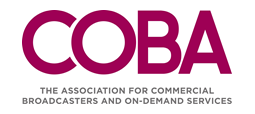Media Statement
April 2023
Ofcom’s proposal today to increase the amount of advertising on PSBs by up to 850 hours per year is clearly something viewers do not want and the regulator lacks the evidence base to support such a move.
Ofcom’s own audience research, published today, states: “When the idea of more advertising was introduced, there tended to be a negative, visceral reaction from viewers. They quickly jumped to the conclusion that any increased advertising would be highly disruptive to their TV viewing and significantly impact their overall programme enjoyment.”
Ofcom then seems to dismiss audience’s views, arguing that they might tolerate more adverts if that results in more investment in content. Ofcom states: “[W]hile audiences do not want more advertising on PSB channels, they are more likely to tolerate it if it can be assured that additional advertising revenue will be generated as a result, and that this will be invested in content.”
Yet in its own statement Ofcom accepts that the financial impact of any changes cannot be predicted, and so may not result in any more investment in content. Ofcom’s statement says: “It is not possible to predict with any certainty what the impact on the market, or particular broadcasters, would be should the stricter rules that apply to PSB channels be removed.”
Indeed, smaller PSBs and their related channels have publicly warned this proposal could harm them. This is quite apart from the negative impact on the wider market that is likely to result, as shown by COBA’s own independent evidence provided to Ofcom. In addition, advertising body ISBA, responding to Ofcom’s call for evidence, warned there is little likelihood of any substantial positive impact financially, stating: “While there may be some short-term deflation created through the increased supply of added minutage, we believe this will be narrow in its time and scope, partly due to limited demand for additional minutage from advertisers. The primary driver of inflation in the Linear TV advertising market is the long-term trend of declining audience figures and the knock-on rising cost of audience reach – which this proposed amendment to the Code on the Scheduling of Television Advertising (COSTA) regulations does nothing to address.”
Adam Minns, COBA’s Executive Director, said:
“It is hard not to draw the conclusion that Ofcom has asked audience for their views and then, when it did not like the answer, gone out of its way to try to persuade them they are wrong. To do this, the regulator has used an argument that no financial analysis – including its own – supports. It is deeply concerning that a regulator that has always prided itself on being evidence led has come to this conclusion.”
COBA’s own research shows that audiences are overwhelmingly against an increase in the number of adverts on commercial Public Service Broadcasters (ITV, Channel 4 and Five). A major survey of more than 1,000 people across the UK showed that more than two thirds (69%) of viewers would watch fewer programmes on commercial Public Service Broadcasters if these channels were to show more adverts. 44% said they would watch more content on advert free services offered by SVoDs such as Netflix as a result.
Ofcom’s proposal could increase the amount of advertising PSBs show by 850 hours per year. This is the equivalent to an extra 35 days of non-stop advertising.
Adam Minns added: “PSBs benefit from many privileges, including statutory prominence, as reinforced and enhanced in the draft Media Bill. With that, should come responsibilities, as was one of the original reasons for limiting their advertising minutes in this way.”
